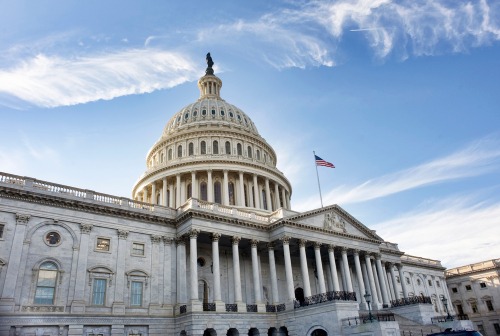
The Senate greenlit the Federal Building Security Act (S. 3613) this week, moving to the House’s consideration a bill that would make federal agencies respond to Federal Protective Services (FPS) security recommendations within 90 days.
“Every day, Americans across the country visit federal buildings for work and to access critical services – and they deserve to feel safe and secure in those spaces,” said U.S. Sen. Gary Peters (D-MI), chair of the Homeland Security and Government Affairs Committee and co-author of the bill. “This commonsense, bipartisan bill will ensure that federal agencies are following the most up-to-date security recommendations to protect both these facilities and the people in them.”
In a hearing convened by Peters in November 2023, witnesses testified that agencies currently ignore more than half of the recommendations on building security put forth by FPS. That would no longer be possible under the new bill, something its authors touted as necessary given the growing range of threats – from cyber attacks to surveillance and active shooters – facing federal employees and public visitors to federal buildings.
More than 9,000 federal facilities currently host 1.4 million employees in addition to a constant train of visitors, all protected by the FPS – a branch of the Department of Homeland Security (DHS).
“This good legislation will make sure that when the Federal Protective Service makes safety recommendations for federal offices and buildings, they are quickly reviewed and taken into consideration,” said U.S. Sen. Rick Scott (R-FL), the bill’s other co-author. “Federal agencies must do everything necessary to serve the American people while keeping public servants safe.”
Between fiscal years 2017 and 2021, the Government Accountability Office (GAO) determined that FPS submitted more than 25,000 facility security recommendations, of which agency facility security committees completely ignored 57 percent. Even of those acknowledged, only 27 percent of measures were implemented.
Notably, the new bill would not mandate agencies to accept FPS rejections, but it would require them to acknowledge and either adopt or reject them. For any rejections, agencies would need to explain to DHS their reasoning. Beyond this, DHS would need to develop a method of monitoring those responses and taking action to enforce accountability and security, with annual reports to Congress on the subject.




